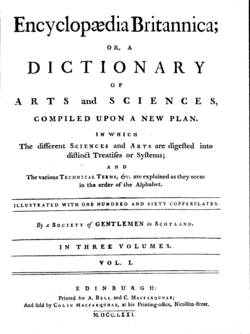
As reported by the Spanish news agency EFE last week, Danish lexicographer Henning Bergenholtz, head of the Center for Lexicography at the Aarhus School of Business, said that the quality of Wikipedia surpasses that of the most prestigious traditional encyclopedias, such as the Encyclopaedia Britannica.
The article (titled Wikipedia es mejor que la Enciclopedia Británica, según un lexicólogo danés – "Wikipedia is better than the Encyclopaedia Britannica, according to a Danish lexicographer" – on the news portal Cortizalia.com – English translation), Bergenholtz also said that Wikipedia still has problems, in that certain articles use too many technical terms, and religious or political topics could contain partial or controversial opinions. In 2007, Bergenholtz had made a similar but more cautious statement about the reliability of Wikipedia, asserting that the site is more trustworthy than "most other" encyclopedic dictionaries [1].
However, Bergenholtz (himself the author of 30 dictionaries [2]) was more pessimistic about the quality of electronic dictionaries in general. He said that between 100,000 and 500,000 of them are available, but 99% should not be used because of their "very bad quality". The remarks were made on the occasion of Bergenholtz being awarded an honorary doctorate by the University of Valladolid.
The trial of the Pending changes software feature generated most of the Wikipedia-centered media coverage last week. As noted in last week's "In the news", early reports – published before the feature became live – emphasized its potential to open up Wikipedia (as described in the Foundation blog post about the trial) rather than its interpretation as a move towards tighter editorial control (which had dominated media coverage of the proposed trial last August, see Signpost coverage: Misleading media storm over flagged revisions). On his "The Wikipedian" blog[3], User:WWB (William Beutler) listed further coverage - on ReadWriteWeb (Wikipedia to Loosen Controls Tonight), Slashdot (Wikipedia To Unlock Frequently Vandalized Pages), and in blogs, also noting that most of it emphasized the openness aspect, with only ComputerWorld (Wikipedia confronts downside of ‘Net openness') disagreeing.
However, in a June 18 panel discussion (Wikipedia: The Wisdom and the Folly of Crowds - starts around 07:45) on KCRW, a public radio station based in California, the latter viewpoint was strongly represented by Julia Angwin, Senior Technology Editor at the Wall Street Journal, whose article Volunteers Log Off as Wikipedia Ages had generated considerable controversy last fall, including a rebuttal by the Foundation (see Signpost coverage: 2009-11-23, 2009-11-30, 2009-12-07). The other panelists were Andrew Lih (User:Fuzheado, author of "The Wikipedia Revolution"), Beutler and cultural critic Lee Siegel (introduced as author of "Against the Machine: Being Human in the Age of the Electronic Mob"). Angwin interpreted the trial as a move away from "crowd sourcing" towards a more traditional structure - "it looks a little like clique sourcing" (10:15). Lih took a more balanced viewpoint (also described in his blog post about the panel), but noted the example of the German Wikipedia where the feature has been active in a much more restrictive form since 2008.
Siegel confessed to use Wikipedia "the way I eat things that I shouldn't and drink things that I shouldn't – it's there, so I have to use it" (20:40), but attacked it as inaccurate and misleading ("information, not knowledge"). As examples, Siegel cited a false allegation about Saul Bellow that had remained for a long time in the article despite being marked as missing a citation (22:30, since removed), and a distorting quote from Marlon Brando's autobiography (26:00, since corrected).
In the conclusion of the panel, Angwin was asked (41:45):
Beutler also reflected about the panel on his blog, regretting that in his "battle" with Siegel about the downsides of anonymity with regard to the reliability of Wikipedia, politeness had prevented him to point out Siegel's own "notoriety" in that respect (Siegel had been suspended as a blogger at The New Republic in 2006, after using a sock puppet to write comments supporting himself, at one point under the heading "Siegel Is My Hero" [4]).


Discuss this story
Is there an English version of the "Wikipedia is better than Britannica" article? It sounds interesting.SPNic (talk) 00:43, 23 June 2010 (UTC)[reply]